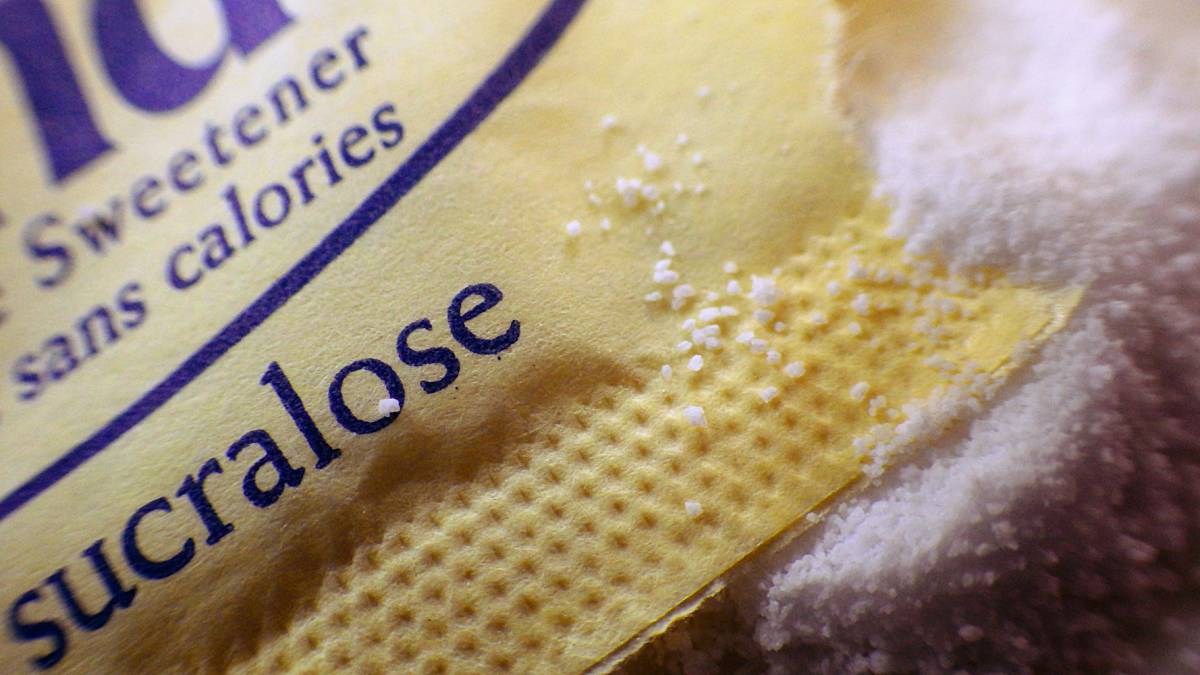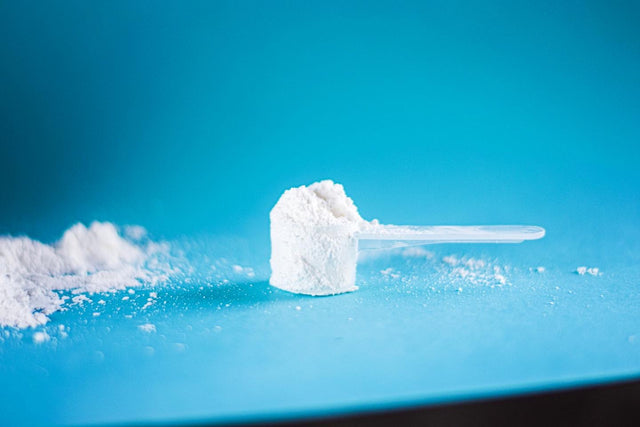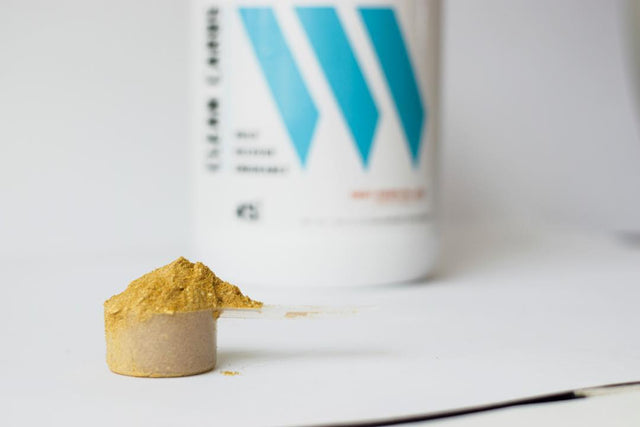In today’s world, much of the information you read is really just misinformation. A perfect example is how sucralose, better known as Splenda affects your gut health. Recent headlines and articles have warned that sucralose can produce adverse effects on the gut microbiome. Well, we’re here to clear the air and reveal the truth about how sucralose truly affects gut health and why the one study that started the controversy isn’t what you think.
What Is Sucralose?
The consumption of sweeteners has dramatically increased over the past several years, due to the adverse health effects sugar has on health and metabolic disease states.
Nonnutritive sweeteners (NNS) such as sucralose have higher sweetening intensity and lower caloric content per gram compared to sugar. Sucralose is actually made from real sugar, by replacing a hydrogen-oxygen group with a chlorine atom resulting in a sweetener that is 600 times sweeter than conventional sugar [R]. Sucralose is the most commonly used sweetener due to its, sugar-like taste, lack of bitterness, stability at high-temperatures, and long shelf life.
RELATED ARTICLE Sucralose Vs. Stevia
Sucralose has been subjected to extensive short-term and long-term studies in both animals and humans (more than a hundred of which were reviewed during the FDA approval process for sucralose), and none of them have demonstrated any significant risk to humans associated with the consumption of sucralose in normal amounts.
Numerous studies have concluded that sucralose is safe and that your body does not acquire any calories from the ingestion of sucralose. Most ingested sucralose moves through the gastrointestinal tract unchanged. So, why all the hype about sucralose and gut health? Well, it all comes down to one, short 12-week study conducted on rats, in 2008.
Why Do People Think Sucralose Is Bad For Gut Health?
Your gut microbiome is comprised of billions of healthy bacteria, that help aid in digestion, boost your immune system, and lower your overall susceptibility to chronic illness and disease.
In a 12-week rat study published in the journal of toxicology and environmental health, researchers investigated the health effects of sucralose on the gut microbiome. The results indicated that there was a reduction in the total number of healthy gut bacteria, a reduction in beneficial fecal microflora, and an increase in fecal pH [R].
The study also indicated that sucralose increased the expression of certain cytochrome P450 (CYP450) enzymes and the transporter protein, P-glycoprotein (P-gp), the latter of which was considered evidence that Splenda or sucralose might interfere with the absorption/bioavailability of nutrients and drugs [R, R].
The Truth About Sucralose And Gut Health
An expert panel that reviewed the study and concluded it to be deficient in many aspects. Published in the Journal of The Regulatory Toxicology And Pharmacology just one year later. In the rigorous study, the expert panel found that the rat study was deficient in several critical areas and that its results cannot be interpreted as evidence that either Splenda, or sucralose, produced adverse effects in male rats, including effects on gastrointestinal microflora, body weight, CYP450 and P-gp activity, and nutrient and drug absorption. The study conclusions are not consistent with published literature and not supported by the data presented [R].
So, Is Sucralose Bad For Gut Health?
Since sucralose is an ‘artificial’ sweetener, people will always find a way to vilify it due to its negative connotation and associated guilt of being artificial. The fact of the matter is that Sucralose is backed through hundreds of clinical studies, which prove that sucralose is safe for use and causes no toxic or harmful effects [R]. No studies have been designed to obtain the proper outcomes through long term, placebo-controlled, double-blind, randomized controlled trials. Further studies are needed to determine the effects of sucralose on gut health and whether the changes in intestinal microbiota observed in animals are present in humans. The takeaway, don’t believe everything you read. Sucralose is safe for use, and there are no studies currently, that prove sucralose is bad for gut health.
References
Brusick D, Borzelleca JF, Gallo M, et al. Expert panel report on a study of Splenda in male rats. Regul Toxicol Pharmacol. 2009;55(1):6-12.
Ruiz-Ojeda, Francisco Javier et al. “Effects of Sweeteners on the Gut Microbiota: A Review of Experimental Studies and Clinical Trials.” Advances in nutrition (Bethesda, Md.) vol. 10,suppl_1 (2019): S31-S48. doi:10.1093/advances/nmy037
Bian, Xiaoming et al. “Gut Microbiome Response to Sucralose and Its Potential Role in Inducing Liver Inflammation in Mice.” Frontiers in physiology vol. 8 487. 24 Jul. 2017, doi:10.3389/fphys.2017.00487
Abou-donia MB, El-masry EM, Abdez-rahman AA, Mclendon RE, Schiffman SS. Splenda alters gut microflora and increases intestinal p-glycoprotein and cytochrome p-450 in male rats. J Toxicol Environ Health Part A. 2008;71(21):1415-29.
Schiffman, Susan S, and Kristina I Rother. “Sucralose, a synthetic organochlorine sweetener: overview of biological issues.” Journal of toxicology and environmental health. Part B, Critical reviews vol. 16,7 (2013): 399-451. doi:10.1080/10937404.2013.842523
Berry, Colin et al. “Sucralose Non-Carcinogenicity: A Review of the Scientific and Regulatory Rationale.” Nutrition and cancer vol. 68,8 (2016): 1247-1261. doi:10.1080/01635581.2016.1224366
Find similar articles:
Artificial Sweeteners Digestive Health nutrition splenda sucralose Supplements






